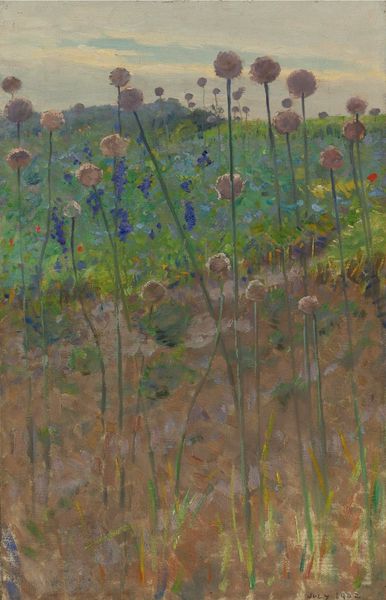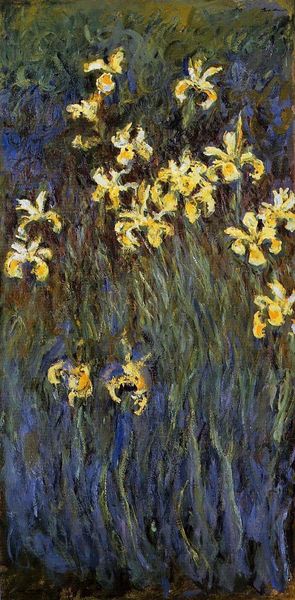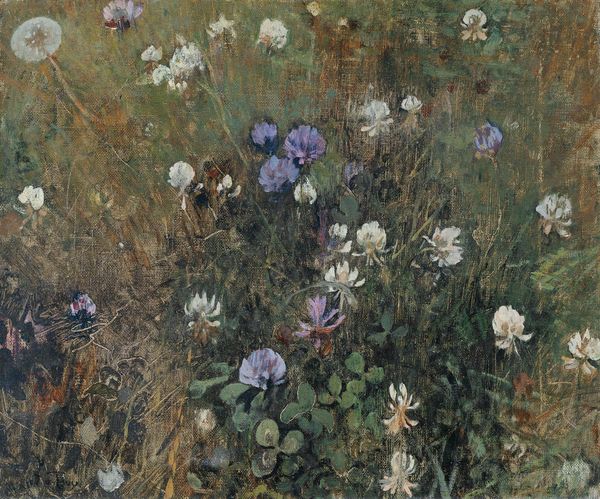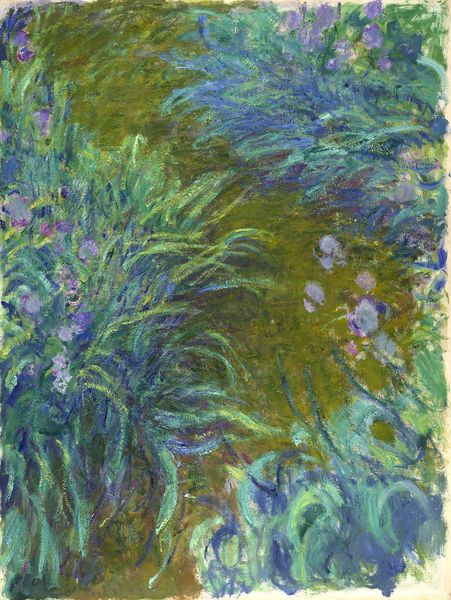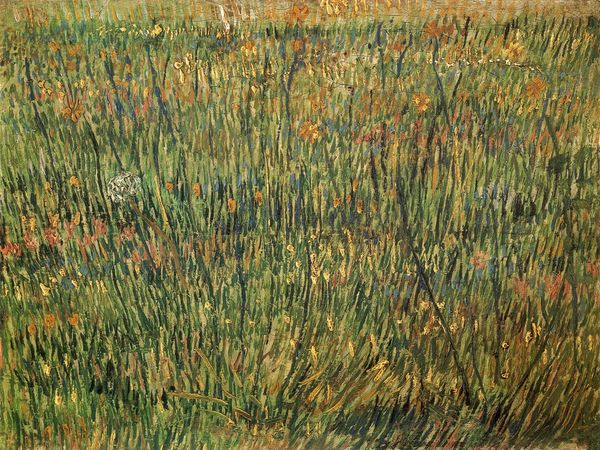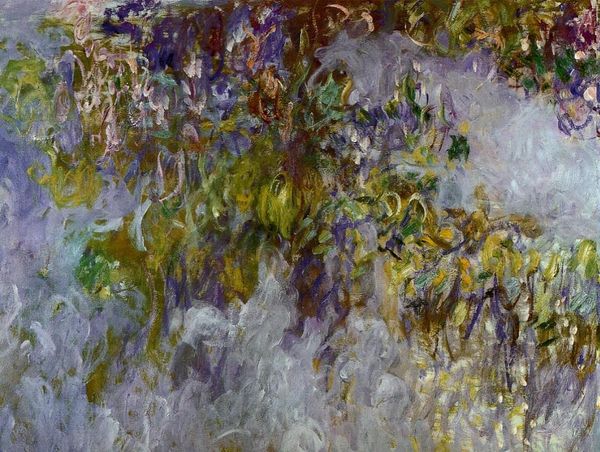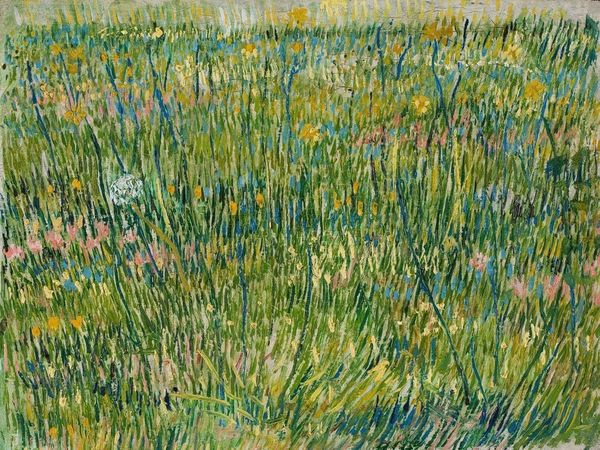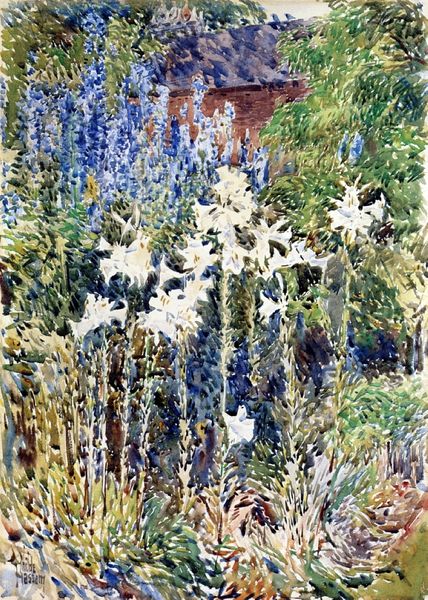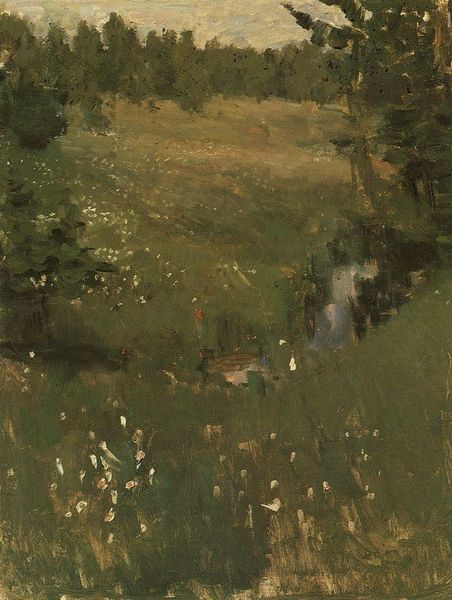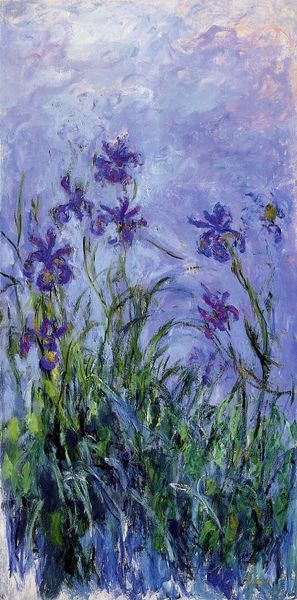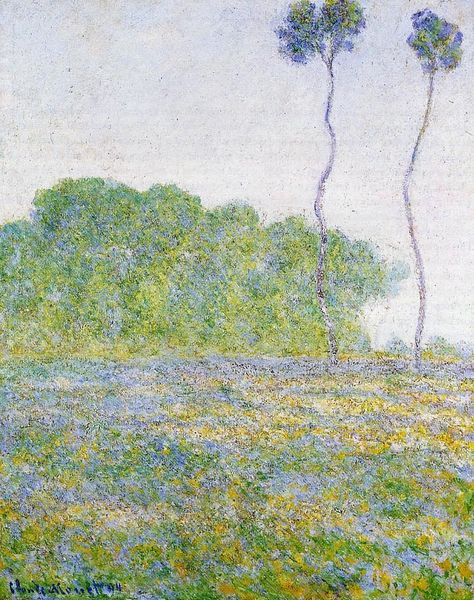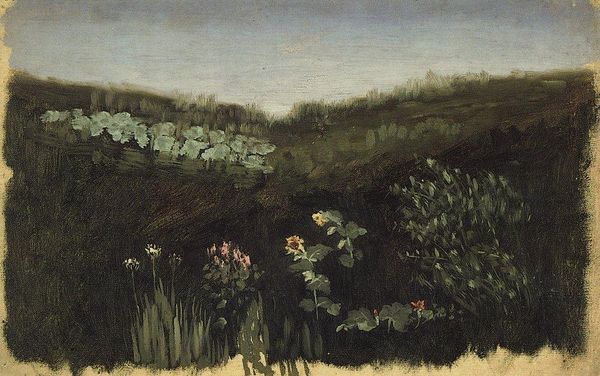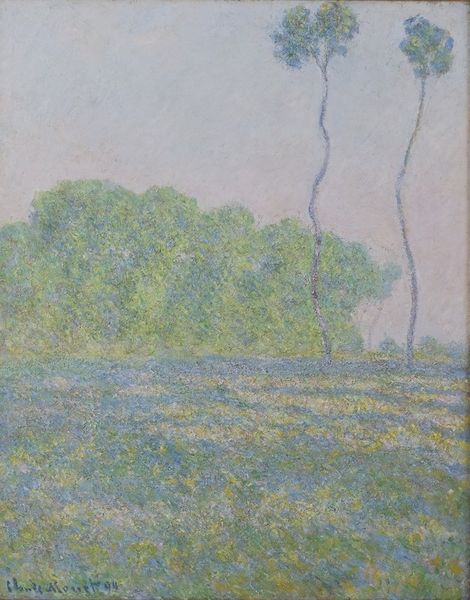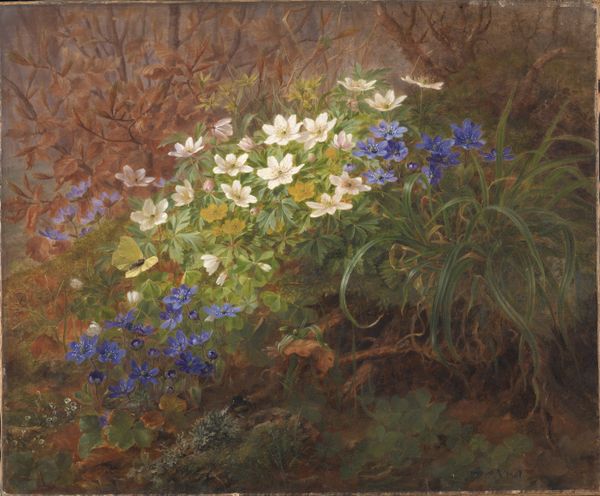
Copyright: Public domain
Curator: I'm immediately struck by its hushed stillness, like a secret whispered on the wind. The muted tones, dominated by earth browns and muted violets, give it an almost dreamlike quality. Editor: You're describing Isaac Levitan’s "Flowery Meadow," painted in 1895. Levitan was a master of the Russian landscape, known for imbuing his scenes with a profound sense of melancholy and introspection. This oil painting, rendered en plein air, offers a prime example of his delicate approach to nature. Curator: That's interesting because I definitely read this meadow as sad, somehow. Maybe because it makes me think of fading and withering, even though it’s a meadow and we think of life and spring! Are those symbols that resonated with Russian audiences? Editor: It’s plausible. In Russian art of this period, nature was frequently employed to reflect social and political circumstances. The impressionistic style with its fleeting moments, may be interpreted as capturing the transitory nature of human existence within a rapidly changing society. But, yes, you are right; flowers were often used symbolically to denote themes of fragility and the ephemeral nature of life and beauty. It connects, maybe, to traditional iconography? Curator: Perhaps, although it feels more atmospheric. The flowers themselves aren't precisely depicted, almost appearing like a swarm or constellation, or vague remembrance more than real objects. What sort of public attention was shown this artist, would you say? Editor: Levitan's work resonated deeply with the intelligentsia. His landscapes reflected a broader desire for national identity. Exhibitions, widely reviewed in journals and discussed, were critical in molding that response. Levitan himself had been a long-time member of the peredvizhniki or Wanderers, the progressive and important artist's movement that would impact generations. Curator: His contribution certainly feels enduring. "Flowery Meadow", with its unassuming appearance and subtle symbolism, invites a slow and contemplative observation that is rarely seen! Editor: Indeed. Levitan gives us more than just a painting; it’s a historical record and meditation that keeps speaking!
Comments
No comments
Be the first to comment and join the conversation on the ultimate creative platform.
